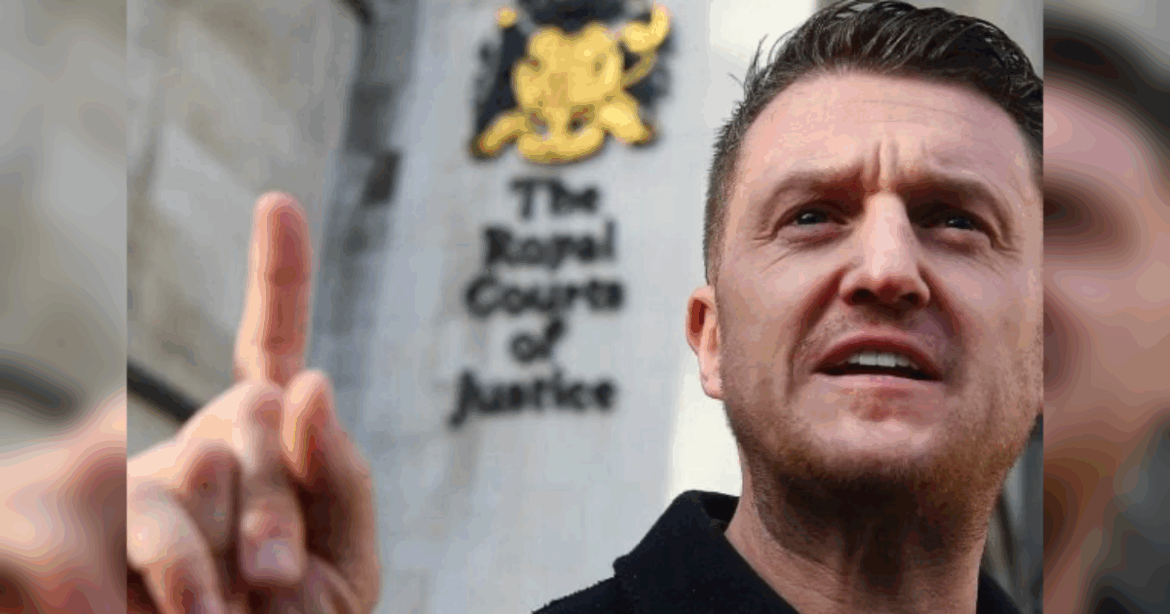British political firebrand Tommy Robinson is set to walk free later this week after the High Court agreed to reduce his controversial 18-month sentence for contempt of court. The decision marks a rare legal victory for the outspoken activist, who has long claimed he is being persecuted by the British establishment for his views on immigration, grooming gangs, and Islamic extremism.
Originally jailed in October for breaching a 2021 injunction, Robinson was punished for repeating allegations against Jamal Hijazi—a Syrian refugee who previously won a libel case against him. The court had barred Robinson from making further statements, but his 2023 film Silenced and a series of interviews reignited the legal battle, resulting in his incarceration.
Justice Johnson’s original sentence included a 14-month punitive term and an additional four-month coercive portion meant to compel Robinson’s compliance with the court’s prior orders. This week, the High Court granted Robinson’s appeal to “purge” that coercive element, shaving off the remaining portion of his sentence.
The ruling follows Robinson’s admission to ten breaches of the court injunction. The UK Solicitor General had submitted two contempt applications, one of which accused Robinson of deliberately continuing to publish the prohibited claims.
Solitary Confinement and Dangerous Conditions
During his imprisonment at HMP Milton Keynes—a facility that has housed some of Britain’s most notorious Islamic terrorists—Robinson was reportedly subjected to 128 days in solitary confinement. Critics say the harsh treatment amounts to political retribution against a man whose activism has long made him a target of the British state.
Robinson’s supporters argue that his work has exposed serious institutional failures, especially in the handling of grooming gangs and rising extremism, and that the government’s response has been to silence dissent through legal intimidation.
Political Persecution or Legal Accountability?
While critics of Robinson claim he knowingly defied court orders, his defenders point out that his case highlights the UK’s increasingly aggressive clampdown on speech that challenges mainstream narratives around immigration and Islam. The injunction Robinson breached was civil in nature, yet the consequences have resembled criminal-level punishment.
Now, with his release imminent, the political and legal fight is far from over. Robinson is expected to speak publicly in the coming days—and if history is any guide, his message will only grow louder following what many see as another example of Britain’s two-tiered justice system.
Bottom line: Tommy Robinson may be walking free, but the war over speech, censorship, and political persecution in the UK is just heating up.

